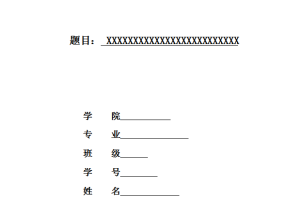摘 要
改革开发以来,我国房地产行业得到快速发展,但竞争也趋加剧。最近几年来,国家出台了一系列房地产行业调控政策,房地产企业面临着巨大的压力。财务战略管理是是现代企业优化资源配置、有效地运营资本、确保企业价值增值的有效途径。房地产企业若要在剧烈的环境下生存,必须制定出合理的财务战略。
本文采用理论结合案例、定性和定量分析的方法,从企业生命周期阶段的视角出发,在研究股利政策和现金股利分配相关理论的基础上,对上海世茂股份有限公司、陆家嘴、恒大地产集团有限公司财务战略现状进行分析,以期为公司财务战略管理提供决策支持,并能够在一定程度上推广财务战略理论研究的领域,这对促进房地产企业持续健康发展具有一定的现实意义。
关键词:房地产行业;上市公司;股利政策;现金股利分配
Abstract
The real estate in China developed rapidly since the reform and opening, but the competition is increasingly intensified. In recent years, with the issue of a series of macro-control policies on real estate market, the real estate enterprises are facing great pressures. Financial strategy management is an effective way for the modern enterprises to optimize the allocation of resources, operate capital effectively and ensure that enterprise value added value. If real estate enterprises want to survive in the severe competitive environment , they must make a reasonable financial strategy.
This paper uses the theory combined with case and the method of qualitative and quantitative analysis, on the basis of relevant financial strategy theories, from the perspective of enterprise life cycle, carries on the analysis about the present situation of Shanghai Shi Mao CO Ltd , Lujiazui and Evergrande Real Estate Group Lid real estate corporate finance strategy, take financing strategy, investment strategy and dividend distribution strategy as the breakthrough point, widely analyze enterprise financial strategic position, build company financial strategy aim and make seletion.
Keywords: Real Estate Industry; listed company; dividend policy; Cash dividend distribution
目 录
第一章 股利分配政策的概念及相关理论
1.1 股利政策的概念………………………………………………………………1
1.1.1股利政策的定义……………………………………………………………1
1.1.2股利政策的分配类型……………………………………………………………1
1.2股利政策的激励作用………………………………………………………………2
1.3现金股利分配政策的概念及理论…………………………………………………2
1.3.1现金股利政策的概念……………………………………………………………3
1.3.2现代股利理论………………………………………………………………3
1.3.3传统股利理论…………………………………………………………4
第二章 以嘉凯城企业为实例分析
2.1企业整体分析………………………………………………………………5
2.1.1企业概况………………………………………………………5
2.1.2企业发展历程………………………………………………………………6
2.2企业的财务战略与财务分析……………………………………………………6
2.2.1目标定位及总体战略安排…………………………………………………7
2.2.2企业财务战略具体分析………………………………………………………7
2.2.3偿债能力与盈利能力对其价值的影响……………………………………7
第三章 企业股利政策的现状及其影响
3.1企业股利政策的现状……………………………………………………………8
3.1.1 公司股利不分配或少分配……………………………………8
3.1.2 经济环境制约,股权结构不合理…………………………………8
3.1.3管理层强调自身利益,使得股利政策偏向管理层……………………………9
3.2股利政策对企业价值的影响……………………………………9
3.2.1对本企业价值的积极影响……………………………………10
3.2.1.1 对企业经济的拉动作用显著……………………………………10
3.2.1.2 股利支付水平高有助于企业价值的提升…………………………………11
3.2.1.3 稳定的股利政策有助于企业价值的提升………………………………11
3.2.2对企业价值的消极影响……………………………………12
3.2.2.1 过高的股利,致使企业利润减少……………………………………12
3.2.2.2 过低的股利,致使企业资金减少……………………………………13
3.2.2.3 股利支付额度大,导致经营不稳定……………………………………13
第四章 结论及建议
4.1.1稳定股利政策,保持稳定性及连续性……………………………………14
4.1.2加强股利分配力度,实行长期稳定的股利分配政策…………………………14
4.1.3规范股东行为,加强对控股股东的监管……………………………………15
参考文献………………………………………………………………15





